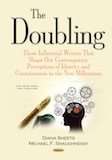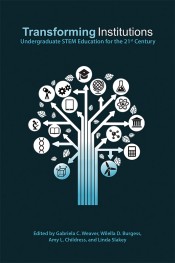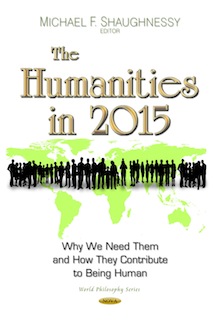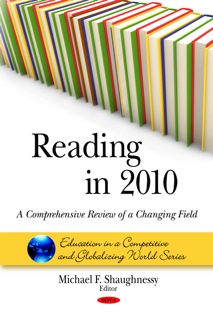Barack Obama's Postmodern Presidency and the Implications for Policy
Copyright © 2008 by Diana E. Sheets
During the closing months of the 2008 presidential campaign, Literary Gulag examined the narratives of Barack Obama and John McCain by means of literary criticism and historical methodology. In the concluding political essay on the 2008 election, we will speculate on the initiatives that will shape President Obama’s administration.
In assessing the future policies of our 44th president, readers must understand that Obama has matured during the age of postmodernism. This era has jettisoned the “certainty of scientific, or objective, efforts to explain reality.” Indeed, Obama’s autobiography, Dreams from My Father, is founded on the postmodern dictum that narrative is an artificial construct experienced with respect to “its own particular and personal reality.” Objectivity that submits to evidentiary claims has been replaced with subjectivity that subsumes to “relative truths” based on “one’s own experience” (http://www.pbs.org/faithandreason/gengloss/postm-body.html).
Postmodernism celebrates the multiplicity of identities—personal, ethnic, and cultural. Not surprisingly, scholars and psychologists have recently made the case that the individual has not one identity, but many competing selves struggling for dominance. “The idea is that . . . within each brain, different selves are continually popping in and out of existence. They have different desires, and they fight for control—bargaining with, deceiving, and plotting against one another” (Paul Bloom, “First Person Plural,” The Atlantic, November 2008, Vol. 302, No. 4, 92). According to this reasoning, dissociative-identity disorder—a psychological condition that causes a person to perceive him or herself as having distinct identities—is only a more extreme manifestation of what is now characterized as “normal multiplicity” (93-4). Gone is the attempt to find scientific evidence for Sigmund Freud’s metaphorical construct of the Super-ego striving to impose a moral order over the battling duality of Id (primal desires) and Ego (self). (Coined by translator James Strachey, these terms are Latinized renderings, respectively, of Freud’s the “Over-I,” “the It,” and “the I,” http://en.wikipedia.org/wiki/Id,_ego,_and_super-ego.) Rather, the postmodern self has dispensed with the search for an objective truth in favor of contingent multiple subjective realities (92-4, 96-8).
Astute writers of autobiography and memoir have understood that the self is fluid, changing perspective, outlook, and identity over the course of a lifetime (http://www.literarygulag.com/blog/show/9). Certainly who an individual is as a child influences the personas he or she adopts as an adult. However, these subsequent selves are clearly distinguishable from earlier youthful identities. Not surprisingly, in Barack Obama’s Dreams from My Father (1995), the reader is exposed to several “evolving selves.” There is the young Obama, age ten, who sullenly meets his father, a virtual stranger. The reader is introduced to another Barack Obama, the twenty-one-year old living in
Never has this perspective of multiple selves—or its antithesis, a chameleon-like persona ever subject to transmutation while possessing no core identity—been more applicable to a president. As Obama himself noted, “I serve as a blank screen on which people of vastly different political stripes project their own views” (The Audacity of Hope, Crown Publishers, 2006, 211). For Simon Critchley, chair of philosophy at the
Despite Critchley’s assertion, however, readers must consider whether this apolitical Obama, attempting to take the partisan out of bi-partisan politics, is but another carefully constructed persona designed to make Americans feel comfortable as he single mindedly pursues his left-leaning agenda. And just what might his policies be? How might they benefit and/or harm the American people and impact societies around the world?
1) The Economy
a) President Obama has selected Timothy Geithner, head of the
b) Obama will provide multi-pronged stimulus packages to jump-start the economy. He will extend unemployment benefits and renegotiate sub-prime mortgages for many homeowners struggling to remain solvent. He has indicated that he will assist
Obama will provide funding for infrastructure improvements to the nation’s bridges, roads, sewage, and railroads. It is hoped that he will support the development of efficient mass transit including efforts to improve high-speed rail along America’s North-East Corridor (Boston to Virginia) and to develop California’s coastline corridor (San Francisco to San Diego) while encouraging new initiatives, such as a high-speed link between Chicago’s airport/city metropolis and its technological resource center, the University of Illinois in Champaign/Urbana. Incentives should be provided to encourage Americans to utilize mass transit.
Benefit: Obama’s policies could revitalize the economy and, in so doing, diminish the financial hardships experienced by many Americans.
Hope: The Obama administration must work with the “big oil” and energy companies to develop fuel alternatives. It must encourage new energy offerings by emerging businesses. It must be committed to creating a range of energy solutions including oil, coal, gas, offshore drilling, and nuclear, as well as wind, solar, and other potentially ego-friendly alternatives.
Energy Incentives: Consumers must be financially rewarded for energy efficiency and financially penalized for excess consumption.
Concern: If the Obama administration permits Americans to purchase drugs overseas, as indicated in the healthcare plan enumerated on http://www.barackobama.com/issues, this might temporarily relieve consumers of some of the burden associated with paying for necessary but expensive drugs. However, it fails to account for the enormous costs associated with the R&D efforts of “big pharma” that are critical to ensuring
c) Why the Democrats fail to acknowledge the bi-partisan origins of the current financial crisis and how this threatens
Gorgon suggests the 2007 fiscal crisis stemmed from regulatory initiatives implemented by the
Thus while Democrats blame Republicans for deregulation and hence the current economic crisis, Gordon suggests they themselves are largely to blame (18). Both parties should stop the accusations and begin true bipartisan reform. These changes should ensure that lending institutions are sufficiently capitalized, that predatory loan practices are curtailed, that lending standards and the financial qualifications for borrowers are assiduously maintained. There should be a curtailment of NINJNA loans—no income, no job, no assets. There should be restraints on the bundling of risky loans in collaterized debt obligations (CDOs), a tiered process referred to as securitization. These bundled mortgages were appraised at variable yields according to their assessed risk. This in turn fostered credit default swaps (CDSs) based on absurdly small margins (1.5 percent). The result was that these acquiring institutions, which were geographically dispersed and, therefore, unfamiliar with the credit history of these loans, had no way of assessing the potential risk of the loans they were acquiring. (A succinct summary of the conditions leading to the financial collapse—minus the author’s subsequent philosophical proselytizing—is provided by George Soros in his preface, “Setting the Stage, The New Paradigm for Financial Markets, Public Affairs, 2008, xiii-xxiv). Finally, a single federal agency should have oversight. Both the borrowing institutions and the regulatory overseers should be subject to independent review. The entire process should be transparent and easy to monitor. Congress should be restrained from subverting the regulatory standards for transitory political gain.
d) What would the economic consequences be should the Obama administration fail to encourage policies favorable to growth? Underlying the Obama administration’s view of economy is a feminized notion that the world should be a safe place in which “fairness” and “do no harm” should prevail. However, as economist Joseph Schumpeter illustrated, capitalism periodically creates havoc, destroying the old means of production. With this destruction comes opportunity: the possibility of new methods of production, the introduction of innovations in the delivery of goods and services, and the inventions of new products that transform the nature of business and its economic engine. It is a dynamic process capable of achieving transformative change (Thomas K. McCraw, Prophet of Innovation: Joseph Schumpeter and Creative Destruction, The Belknap Press of Harvard University Press, 351-2).
The Obama administration might rely excessively on neo-Keynesian policies, i.e. the redirection of production toward socially mandated outcomes favoring the governmental and “big-firm” initiatives. As a consequence,
What would be the impact of a protracted economic downturn? Fully 70% of all new jobs are created by firms less than five years old. In a relatively healthy economy, Gross Domestic Product might increase 3% annually. At that rate approximately 600,000 new firms are created yearly. Of these, roughly 1,000 would be firms offering technologically innovative products and services that constitute the basis for a entrepreneurial economy. But if the economy slows during this current recession to only 1.5% growth, then, we could expect only 300,000 new firms providing only 35%, rather than 70%, of the nation’s new jobs. The entrepreneurial firms responsible for new technologies would, in all probability, drop by 50% to only 500 new firms. If the economy remained in a sustained downturn, these losses would accrue year after year after year. These lost jobs—and that represents human lives threatened or destroyed in the balance—would never be retrieved. Of all these lost opportunities, none is more harmful to a nation’s economy than the loss of technically innovative businesses that constitute the entrepreneurial rocket fuel propelling our economy. The consequences of a protracted downturn would, therefore, be devastating (SchammVideo).
2) Foreign Policy
Obama’s foreign policy will embody the pious sentiments expressed in his
The
Creation of a
Terrorism: It is hoped that President Obama will work with world leaders to quell terrorism.
3) Immigration
The Obama’s administration will institute within its first term an overhaul of immigration policies that will provide amnesty to millions of illegal immigrants and will introduce a guest worker program that offers legal rights and medical benefits. These measures will affirm the moral high ground for the Democratic Party as the protector of the disenfranchised while ensuring that Latinos vote Democratic for at least a generation to come. For as Peter Brimelow and Edwin Rubenstein suggested in their 1997 National Review article “Electing a New People,” “Demography is destiny in American politics” (http://www.vdare.com/pb/swept_away.htm). By 2008, they suggested, ethnic changes in the electorate would all but guarantee a long-term shift in favor of the Democratic Party. The numbers, as Mark Krikorian has shown, are significant. From 1995-1999 the average yearly inflow of illegal aliens was nearly 800,000. Roughly half these individuals remained in this country (http://www.cis.org/articles/2005/back605.html). Between 1995 and 2004 illegal immigration doubled. Latinos have become one of the most significant groups in this demographic (Peter Wehner, “Keeping Them Out, Letting Them In,” Commentary, July-August, 2008, Vol. 126, No. 1, 58). Currently one third of all immigrants and four percent of all residents are illegal immigrants in
The Latin American turnout for presidential elections suggests what is at stake. Five million Latinos voted in 1992. In 2008 12 million Latinos went to the polls out of a total of 46 million living in
Issue: Certainly a case can be made for the benefits of legalizing illegal immigrants. They have contributed economically and many have worked in circumstances that were difficult or even intolerable. Most are hard-working individuals devoted to their families. However, granting them citizenship sidelines significant policy issues that might otherwise frame the debate. Who should qualify for citizenship? What are the skills or talents or contributions we seek from those we select to become citizens? Finally, the granting of citizenship to illegal immigrants effectively punishes law-abiding individuals who sought or might consider becoming citizens by legitimate means.
4) Health Care and Entitlement Programs (Social Security, Medicaid, and Medicare)
Given the growing cost of health care, which have doubled over the past 8 years, increasing 3.7 times faster than employer wages, Americans are concerned about how they’re going to pay for medical coverage. More than half the bankruptcies filed today are due to medical costs. More than 45 million Americans currently have no health coverage. Of these, over 8 million are children and fully 80 percent of the uninsured are members of families who work. (See the President-elect’s health care proposal, http://www.barackobama.com/issues.)
President Obama’s administration proposes to extend health care coverage to all children while making care affordable and available to Americans including those with chronic illnesses and preexisting conditions. Given that health care has become one of the critical issues preventing individuals from forming their own companies (SchrammVideo), the institution of a health care policy that is affordable and available to all Americans would encourage the development of new businesses and sustain small companies that are struggling to provide coverage. Affordable health care would also give the “big firms” the ability to hire without excessive concern about the administrative costs. Assuming, that is, that health care reform can be achieved economically.
Potential Benefit: It is hoped that doctors, insurers, and health provides can successfully work with the Obama administration to implement a health care program that will improve the quality of life for millions of Americans.
Concern: The cost may be higher and implementation more difficult than imagined. Reforms might cripple the ability of doctors, nurses, and pharmacists to provide state-of-the-art health services.
5) Education
There is no single measure more likely to advance the economic and social prospects of Americans than high quality education. It is the great opportunity equalizer. Obama has proposed support for Head Start. He has called for programs to reward excellence in the public schools from K-12. He has advocated the introduction of more charter schools. He has discussed implementing measures that would reward teachers for excellence and improve student performance. He has suggested providing a $4,000 educational tax credit to individuals to attend college in return for community service (http://www.barackobama.com/issues).
Concern: Ensuring educational advances that improve the economic opportunities of young Americans will be the most challenging task of the Obama administration. To succeed, there must be standards of excellence. Government, schools, parents, and children must be committed to achieving these goals. However, a study recently published in To Read or Not To Read suggests our children’s reading proficiency is only “average.”
6) Energy Development, as well as Science & Technology Initiatives
The Challenge: The Obama administration should increase its investment in energy research at least fivefold from $4 to $20 billion. R&D should be conducted with universities, research facilities, and a synergy of public-private initiatives. These efforts should be directed toward developing new energy and enhancing fuel-efficiency (Romney).
The Problem: Beyond energy initiatives and stem-cell research, the Obama administration is unlikely to support additional scientific initiatives that would further R&D or foster new scientific technology or provide the funding for the next major NASA space initiative. The Democratic Party has, in recent years, been anti-science, anti-technology, and anti-business. Failure to encourage scientific excellence will ensure that
Conclusion:
President-elect Obama has come of age in a postmodern era. Values have become culturally relative. Foundational truths appear less than compelling. President Obama will bring his many selves to the role of our Commander-in-Chief. But unlike academe, unlike community organizing, unlike his tenure in both the Illinois Senate and the U.S. Senate, the actions of his presidency will be consequential. As Congress discovered recently, there is a real downside to fiscal irresponsibility no matter how noble the intent. The consequences of failure by the Obama administration could be catastrophic. After all, it’s a real world out there, not a Virtual Reality.
President Obama will have the potential to achieve momentous outcomes. As Schumpeter noted, Creative Destruction—which surely we are experiencing today—allows for the possibility of unparalleled innovation and opportunity. We expect great things from our presidents. We expect nothing less from President Obama.









